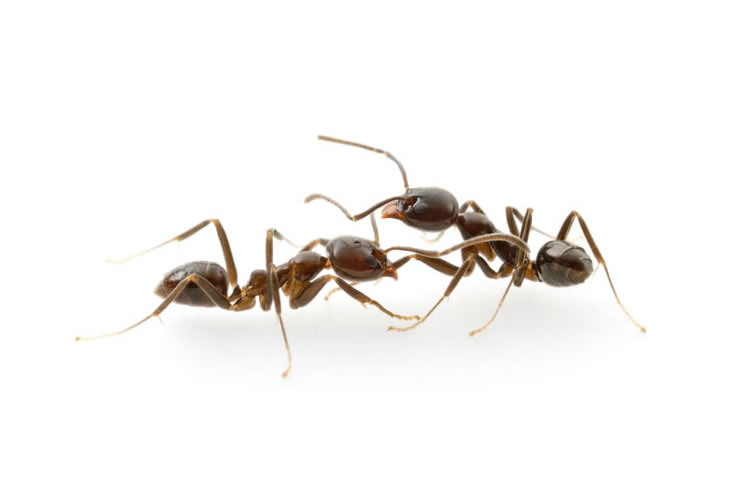
Saturday: S. and I dig the ant farm from the closet. I never did send away for the mail-order ants.
Sunday: We find an anthill. “Are they too small?” asks S. The ant farm has air holes, and Mom probably wouldn’t like ants running everywhere. “Oh no,” I declare. “They’re not too small.”
Monday: They were too small.
Tuesday: “It’s very important,” I remind S., re-reading the instructions, “to gather ants from a single colony, or else they will fight.” A look passes between father and son. Ant wars!
No, no. The point is to learn about the sanctity of life and the responsibilities of caring for small creatures. An Ant Farm is a low-key, trauma-free introduction. Should something go wrong, a five year old won’t be as attached to an ant as he would be to, say, a pile of sleeping kittens. Anyway, what could go wrong?
We find dozens of big friendly black ants swarming the buds of a flower. It takes an hour to populate the farm. “Black ants are even faster and smarter than red ones!” remarks S.
Mom is pleased that S. has ants again. Then we all watch, in awe, as the ants curl up and fall asleep, all together like a pile of kittens. “These ones won’t escape, that’s for sure,” I say.
Wednesday: They escaped. The person in charge of these things didn’t snap the lid into place properly. Dad scans the living-room for movement, and to avoid Mom’s eyes.
Then S. cries out: “Ant!” He runs across the room and points to the black spine of a book in the shadowy corner. He cries out again. He has spotted, fifteen feet away, another black ant crawling along a black extension cord. Thanks to his special ant-vision, we eventually recover four ants.
Thursday: All is well in ant land. But the farm is definitely underpopulated.
A now-familiar cry comes from the bedroom: “Ant!” There, on the windowsill, is one black ant. We’re on the third storey, so this surely must be one of our escapees. I grab an empty candy tin. When we release the ant into the farm, it’s dusted with white powder. S. names her Sugar.
We take a nap. I wake up first and creep over to the farm.
Sugar is racing back and forth near the top, enraged by her captivity or buzzing on sugar. Then I notice one of the other ants strangely bent atop the barn. Leaning closer, I see that one leg is missing and its neck is snapped.
Sugar has slaughtered it and hung it up to dry.
This is terrible. As I’m watching, Sugar veers down towards the three remaining ants. One of them, the brave one, charges up the plastic wall. Both ants have opened their jaws as wide as they go. Panicking, I open the lid. Sugar changes direction and springs free. “Yikes,” I say out loud, jumping back from the killer. But I trap her and run outside, then rush back to cut down the corpse.
When Sam wakes up, I steel myself a second time.
“It seems that Sugar wasn’t from the same colony after all.” His eyes go wide as the implications sink in. I give the rest to him all at once. “She killed one of the other ants so I had put her outside. I’m sorry. It was my fault.”
Sam runs to the Ant Farm, counts the herd – now down to three – and then turns and walks slowly away. By the time he flops on to the couch he is crying. His bitter, anguished sobs are of a type I’ve never heard from him before.
His sorrow turns to anger. “Now I want to squish Sugar,” he vows. An antenna for an antenna, a mandible for a mandible.
I’m not ready for a capital punishment talk. “But Sugar couldn’t help it…” It’s fine to blame murder on your upbringing? “She was probably just defending herself…” The nuances of justifiable homicide? Ad hoc parental pragmatism wins the day. “Look, it was my fault for putting her in there, and anyway you can’t squish her, because she’s gone.”
Sam sniffs back some tears and looks at me with wounded, betrayed eyes. “Well then I don’t want to call her Sugar any more.” Exile being insufficient punishment, Sugar is renamed. “Poo-poo.”
Today we returned to the flower garden and captured three new ants. As soon as we introduced them into the farm, the residents sprinted to hide in a tunnel. Holding our breath, we watched the newcomers as they zig-zagged towards them. Were they really from the same colony? Had the domesticated ants lost some vital chemical identifier, rendering them strangers to their family?
Relief. The cowering ants crept out, and soon all six ants were huddled together, sleeping, like a pile of kittens. The new ones would be popular, Sam suggested, because they were sugar-coated.
We’ve learned about cruelty and death and felt the first swellings of a hunger for revenge. We’ve learned that Dad can make multiple bad calls in succession, but still save the day. (Right?) We’ve learned that Mom is unusually calm about having ants loose in the apartment. And we’ve learned that an intellectual fascination with ants can quickly grow into emotional attachment, and that when it comes to introducing the responsibilities of caring for small creatures to a five year old, there is no such thing as a trauma-free option, which can only be all for the best.


